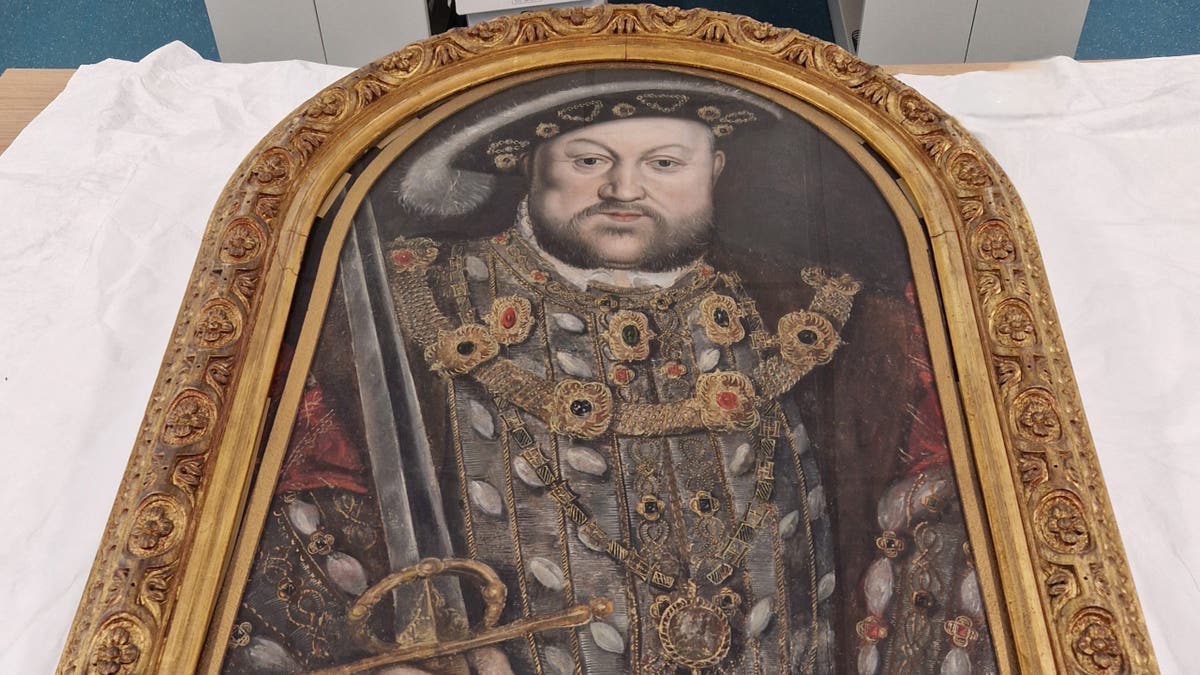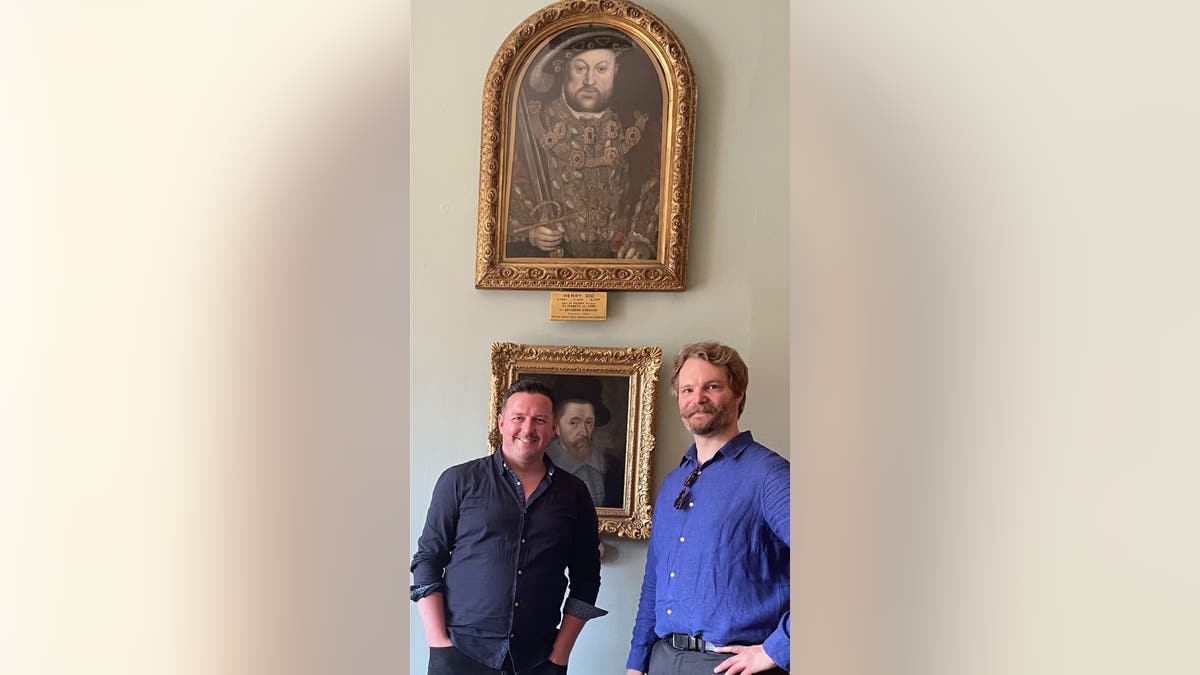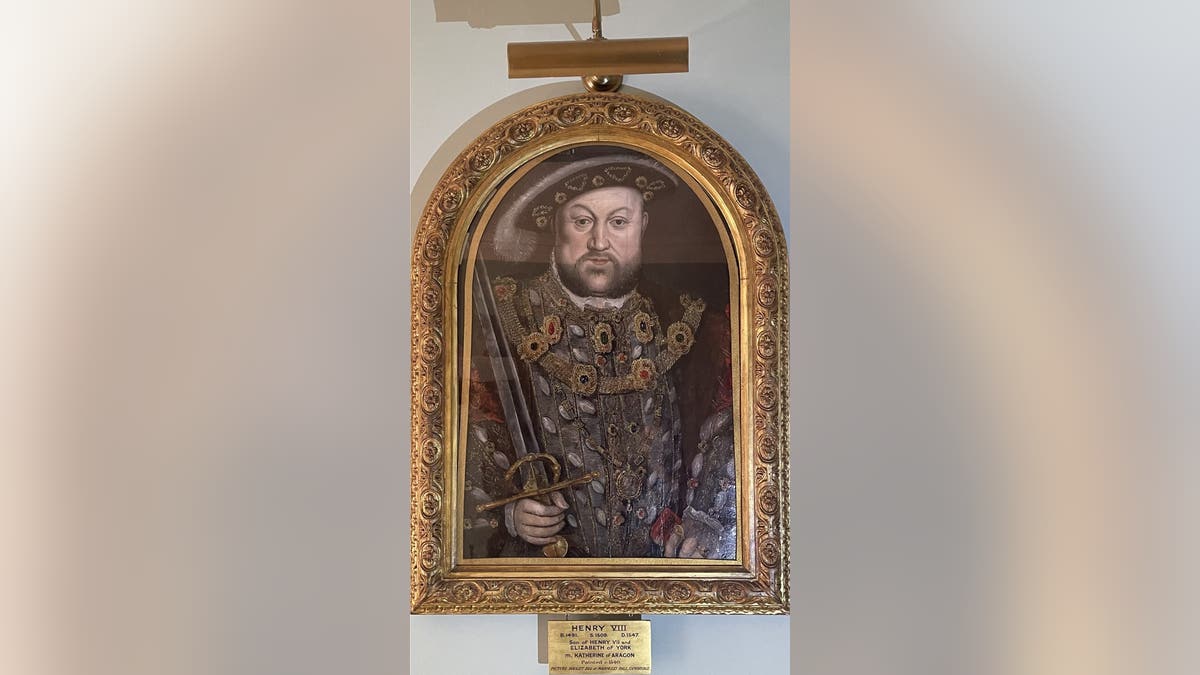Unique toast! King Charles III portrait is made from toast and marmite — see the wild video!
It seems he's toast! Artist Nathan Wyburn created an incredible portrait of King Charles III using nothing but marmite and toast. See the wild creation!
Sometimes, a simple scroll can turn into a miraculous discovery.
That was the case for British art historian Adam Busiakiewicz, who was scrolling through X when he noticed something that stood out to him. Hanging in the corner of a room of Warwick, England's Shire Hall was a portrait of King Henry VIII.
"[Tim Cox, Lord Lieutenant Warwick] posted this photograph of this room full of people," Busiakiewicz told Fox News Digital in a phone interview, explaining that he was particularly drawn to the paintings in the background of the photo.
ARCHAEOLOGISTS MAKE DEATHLY DISCOVERY AT BOTTOM OF 800-YEAR-OLD SHIPWRECK
"I spotted that picture in the corner with this particularly round-topped, arch-topped sort of frame, and it was, incredibly lucky, really, that last summer I was working at Sotheby's on a painting from this very fascinating set that was put together by Ralph Sheldon about 400 years ago," he said. "This set [is] very famous for the fact that they have these round tops, and actually, portraits don't usually have that sort of configuration."
"It made me immediately think, 'Ah, that's a very interesting painting,'" the art historian continued.

A portrait thought to be lost was discovered by a British art historian while he was scrolling on social media. (Warwickshire County Council )
After spotting the painting, Busiakiewicz dug deeper to figure out if this was the ancient portrait he believed it was.
To do so, he spent about an hour conducting research, through scans of books covering Sheldon's paintings that he had at his disposal.
"The portrait of Henry VIII that was part of this famous set has never been identified in modern times, so nobody knew where it was, and that's why it's been missing," Busiakiewicz told Fox News Digital.
The painting of Henry VIII was one of 22 portraits, part of the famous set commissioned by Sheldon in the 1590s, according to a press release.
CLICK HERE TO SIGN UP FOR OUR LIFESTYLE NEWSLETTER
Only a few of the paintings of the original 22 are still known to exist today, which can be found in the National Portrait Gallery, London; Eton College; and Knebworth House.
This discovery of this ancient portrait is still intertwined with mystery and unanswered questions to be solved, such as the portrait's path to Warwick’s Shire Hall.

Aaron Manning, local Warwick historian and interpretation manager for the Historic Royal Palaces, left, and Dr. Adam Busiakiewicz visited Warwick’s Shire Hall to see the long-lost portrait. (Adam Busiakiewicz)
"We know that the [Warwickshire County Council] purchased it in 1951, from a place called Madingley Hall, which is now owned by the University of Cambridge," said Busiakiewicz.
"But it was sold in the late ‘40s, early ’50s, and most of its art collection was sold at the same time. So it appears that the council bought it from the sale of that house."
He added, "Because there's an old label on the back of the painting… We know that it was last in a sale in 1908, at Christie's in London, and that sale was property belonging to the Marchioness of Conyngham, who was a British aristocrat, and it must have been in that collection for some time. I don't know exactly how long, but now I'm trying to work out from 1908 back to 1781. There seems to be a bit of a gap, and that's the gap we're trying to close."
For more Lifestyle articles, visit foxnews.com/lifestyle
The movement of art can be difficult to trace, especially a piece as old as this one.
Busiakiewicz said a painting sold between two people who didn't record the details can cause history to be lost.

Tracing back the route taken of this portrait is difficult to uncover, but it is a path being studied by Busiakiewicz. (Adam Busiakiewicz)
That said, Busiakiewicz is confident that there is enough evidence to support the piece as being the long-lost painting.
Evidence includes the portrait's frame and an inscription found on the painting that was painted over, which relates to all the Sheldon inscriptions.
When it comes to art, there are components that play into its importance and value. In the case of this portrait, its finding carries significance for the hundreds of years it dates back, the collection of which it's a part and the recognizable king as its focal point.
CLICK HERE TO GET THE FOX NEWS APP
A painting can find value in the artist who created it, if they were someone deeply admired, Busiakiewicz said. A painting's quality and provenance can also be conducive to its worth.
"All of these factors have to be taken into consideration for the value of a picture to be established," Busiakiewicz said.
"But ultimately, the fun things about auctions as well is that all you need is two people who are interested in buying that painting, or three or four if we're lucky, and the value of a picture can soar — the sky's the limit sometimes. It's a very mysterious science."









































